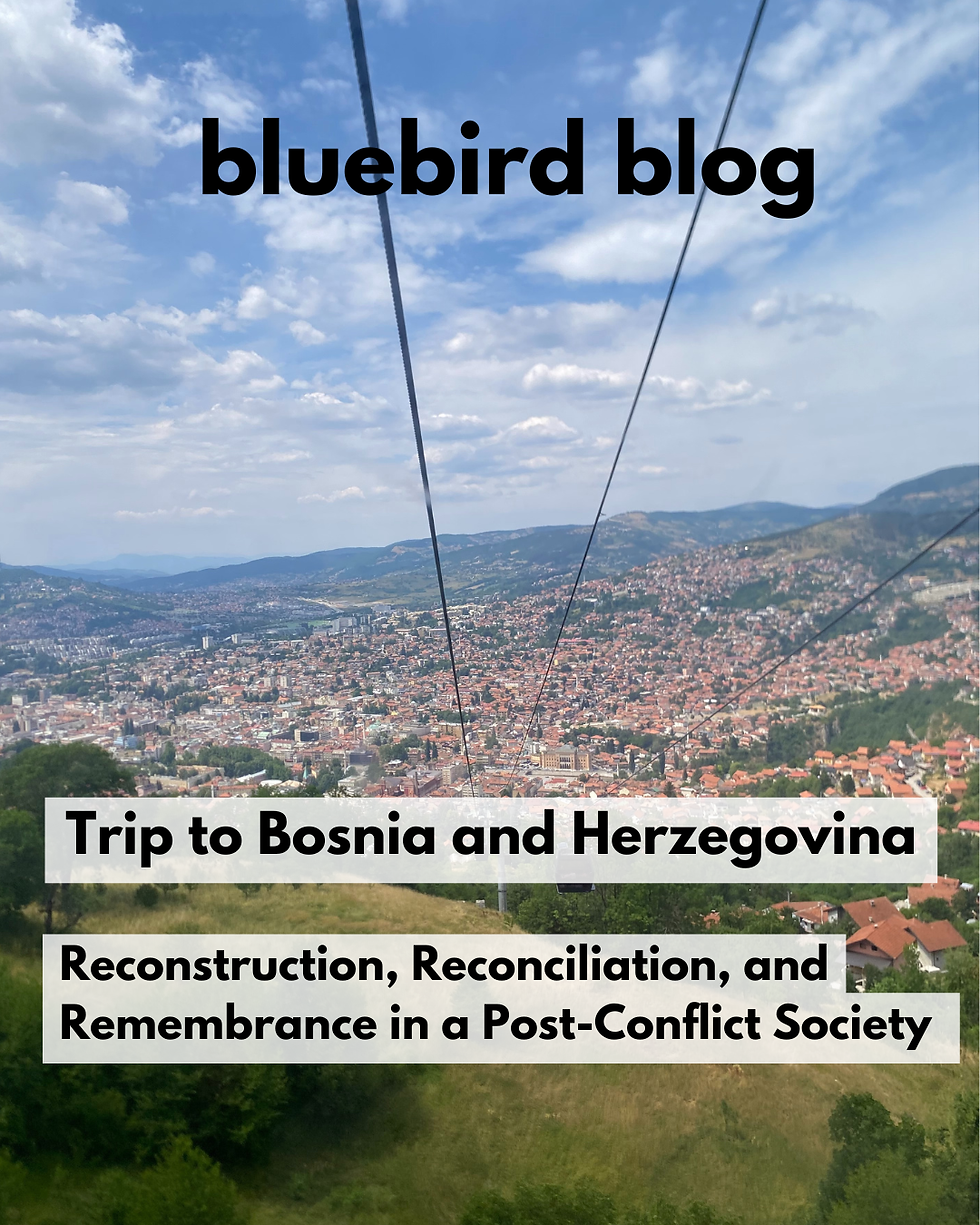Grimshaw Trip 2023 to Cambodia
- mcvan-draanen-glis
- Jul 29, 2023
- 3 min read
Updated: Aug 28, 2023
This report was written by the Grimshaw delegation to Cambodia and it was edited by Kieran Hurwood, Managing Blog Editor.

Wedged firmly in between regional powerhouses Thailand and Vietnam, the Kingdom of Cambodia, once home to the vast Khmer Empire, continues to grapple with its genocidal past and its desire for a peaceful and prosperous future. In June, Grimshaw travelled to Phnom Penh to gain a deeper understanding of how a nation which endured one of the most brutal genocides on record is transforming itself into an industrial and investment hub.
Our first stop was Phnom Penh, the capital city, where we delved into Cambodia's recent dark past by visiting the infamous S-21 prison and the Tuol Sleng killing fields where over 20,000 men, women, and children were tortured and perished. These sites served as poignant reminders of the Khmer Rouge regime's atrocities and the genocide that claimed the lives of approximately two million people between 1975 and 1979. Immersed in the solemn atmosphere, we were privileged to talk to Bou Meng, one of just twelve prisoners who survived the fall of Pol Pot’s regime. He recounted the harrowing experiences of those who witnessed the torture and tragedy first hand. This encounter fostered a profound understanding of the country's history and its lasting impact on Cambodian society.
Next, the delegation visited the British mission in Cambodia, where we met with Charge d’Affaires Marc Thayre who introduced us to the initiatives aimed at battling China's growing influence in Southeast Asia and securing a sustainable British influence in the region. Recognising the importance of private finance and micro industries, the mission emphasised the need to leverage these resources to bolster Cambodia's impressive economic development and construction boom. By facilitating partnerships and private collaboration, the FCDO aims to foster sustainable growth, build local capacity, and create opportunities for Cambodian entrepreneurs. This strategic approach serves as a viable alternative to excessive reliance on external influences, offering hope for long-term stability and self-reliance.
Continuing our journey, we arrived in Siem Reap, a vibrant city renowned for its connection to the magnificent Angkor Wat temple complex. Exploring the UNESCO World Heritage site, we marvelled at the architectural grandeur and intricate carvings that revealed the rich history and religious significance of the Khmer civilization. Immersed in the captivating blend of Hindu and Buddhist influences, we gained a deep appreciation for the cultural legacy that shapes contemporary Cambodia.
Our final destination in Siem Reap led us to the APOPO visitor centre, where we learned about the lingering legacy of civil war era minefields and their devastating impact on rural communities. APOPO, an international non-governmental organization, employs trained rats to detect and clear landmines, ensuring safe and prosperous futures for affected regions. This enlightening experience shed light on the ongoing challenges faced by communities living amidst minefields and the vital role played by organizations like APOPO in fostering development and a path to a brighter future.
Our academic trip to Cambodia provided a comprehensive understanding of the country's complex history, current economic challenges, and vibrant culture. From confronting the haunting remnants of the Khmer Rouge regime in Phnom Penh to exploring efforts to counterbalance China's influence in Southeast Asia, our journey shed light on Cambodia's resilience and determination to shape its own destiny.
Additionally, our immersion in the majestic Angkor Wat and the insightful visit to the APOPO visitor centre deepened our appreciation for Cambodia's rich cultural heritage and the ongoing efforts to overcome the aftermath of the civil war era. As we concluded our trip, we left with a profound respect for the people of Cambodia and their resilience in the face of adversity, and a renewed commitment to supporting their endeavours towards growth, development, and the preservation of their unique cultural heritage. By engaging with Cambodia's past, present, and future, our academic trip served as a catalyst for meaningful reflection, dialogue, and action to contribute positively to the country's journey toward progress and prosperity.
The trip’s organisers would like to extend special thanks to all of those involved in planning and facilitating this trip. Without your efforts this delegation would not have been able to take place.







Comments